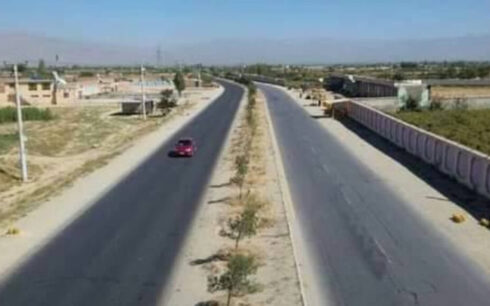Opening the enhanced interactive dialogue on Afghanistan, Nada Al-Nashif, United Nations Deputy High Commissioner for Human Rights, said in Geneva on Monday the backlash against women and girls’ rights since the Taliban took power in 2021 had been “profound and all-encompassing”.
Speaking at the UN Human Rights Council meeting Al-Nashif expressed the Office of the High Commissioner’s deep concerns about the discriminatory and restrictive environment and the climate of fear in which women and girls lived in Afghanistan. “Extreme discrimination and violence against women and girls should not be accepted, let alone normalized, anywhere,” she said.
Dorothy Estrada-Tanck, Chair of the Working Group on discrimination against women and girls, said in turn that oppression, poverty and uncertainty were placing extreme pressures on women and their families in Afghanistan.
She also noted that declining mental health was a serious concern of every woman and gender-related killings were occurring in women’s and girls’ own homes, in public spaces and in detention facilities.
“Women and girls had no recourse or legal protection, while discrimination and violence were being legitimized by the de facto authorities. Blatant forms of gender-based discrimination were perpetrated with total impunity, without any regard for women’s rights, safety or autonomy,” she said.
In the discussion, speakers expressed alarm about the increasingly dire human rights situation of women and girls in Afghanistan, and said the use of cruel, inhuman and degrading punishments, like stoning, flogging and burying under a wall, was deeply concerning, and violated Afghanistan’s obligations under international law.
The speakers, representing over 60 countries and dozens of organizations, called on the international community to redouble its efforts to support and empower the Afghan people.
Since the Taliban’s takeover of the country, women have been barred from higher education, the justice system, and from working for international organizations and non-governmental organizations. Schools for girls above Grade 6 have also been closed, which has put girls at further risk of domestic violence and exploitation, including child labour and child marriage.
Richard Bennett, Special Rapporteur on the situation of human rights in Afghanistan, meanwhile said it was the Council’s responsibility to do everything in its power to restore, protect and promote the rights and freedoms of women and girls in the country.
He said the human rights situation for women and girls had only worsened, and there had been no improvements for others in the population who were marginalized, associated with the former Islamic Republic, or who resisted the Taliban’s ideology.
He said the international community needed to do all that it could to tackle and reverse the severe deprivation of fundamental rights of women and girls in Afghanistan.
Meanwhile Shaharzad Akbar, Executive Director of Rawadari, a human rights organization in Afghanistan, slammed the international community for standing by and allowing the Taliban to violate women’s rights.
He said “the Taliban had turned Afghanistan to a mass graveyard of Afghan women’s and girls’ ambitions, dreams and potential,” adding that the international community was either “passively watching this massive graveyard and issuing some statements, or in some cases actively assisting or complying with this mass burial.”
He said UN Member States needed to refrain from any interactions that further normalized Taliban’s “gender apartheid” and created an impression of de facto recognition.





